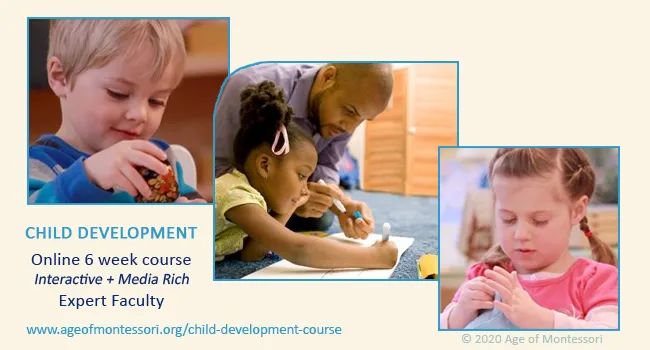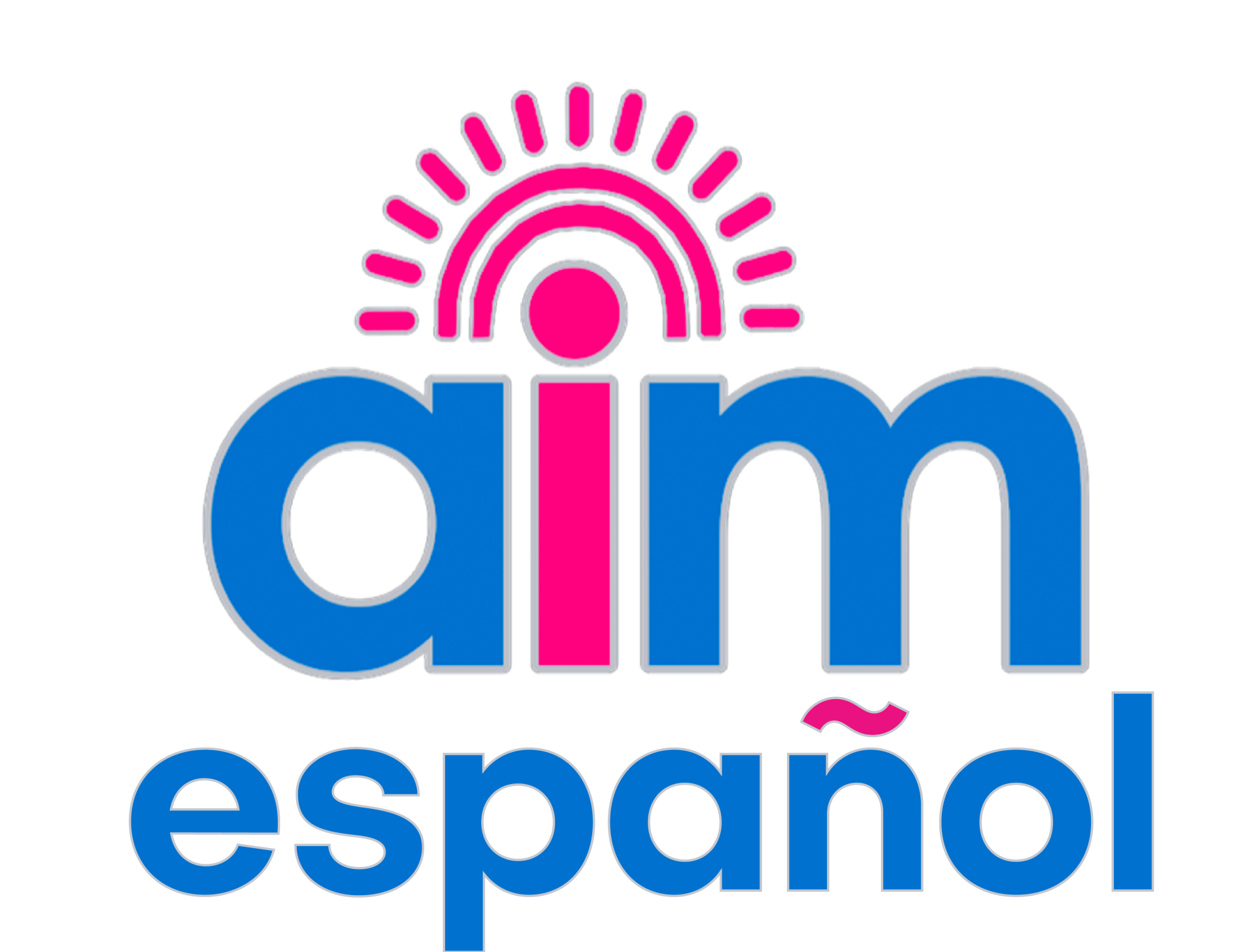Getting Familiar with Learning Differences
I know that many of our adult learners and parent readers want to know more about learning differences. In this issue, I present an article written by a current Age of Montessori student who is completing her Internship program. She makes some wonderful, practical points from her close observation of the children in her classroom.
The Montessori Assistant as an Observer
by Helene Rosenberg
The Montessori Assistant plays an important role in the success of the classroom environment. He/she provides integral support to the lead guide and, through an observant and thoughtful interaction with the children, ensures that they have an authentic Montessori educational experience. While the role involves a lot of cleaning (let’s be real!), the Assistant is uniquely placed to screen the children for a variety of early developmental markers and advocate for early intervention, if needed.
The brilliance of Dr. Maria Montessori is apparent through her innovative materials. There are a few lessons in the area or avenue of learning that we call “Sensorial” that should be given early and observed often, with an eye on assessing a child’s connection with his/her five senses. The following illustrations of problems that I was able to observe and share with my head teacher, and then with the parents, are based upon children in my care.
Color Tablets – Vision
A 3-year-old encountered challenges with the lesson, and upon vetting her grasp of colors on other materials – flags, puzzles and books – it was apparent that she was colorblind. The lead guide adjusted her three-period lessons, so the child was able to participate in a way that validated her understanding and built her confidence.
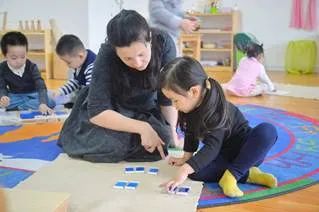
Writing Slips – Vision
A 4-year-old with an excellent pincer grip struggled to write within the lower dotted line. During an eye exam, the pediatrician identified a need for glasses. The work had been frustrating for this boy, and he avoided it until we diagnosed a vision problem – and a solution. He proceeded to enjoy a sensitive period for writing and documented more slips than anyone in the class!
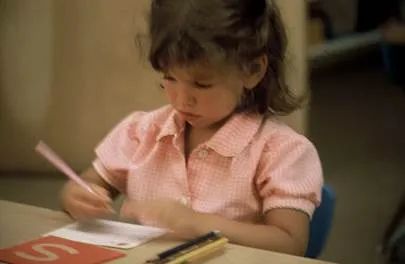
Sound Cylinders – Hearing
A 2.8-year-old exhibited silly behavior (that was out of character) during a lesson. During line work, further observations took place to songs with varied tempos and lessons on the Montessori Bells. A hearing exam by a pediatrician uncovered the need for a hearing aid. Equipped with the device, we had a joyful child on our hands who loved to sing, dance and balance materials on her head!
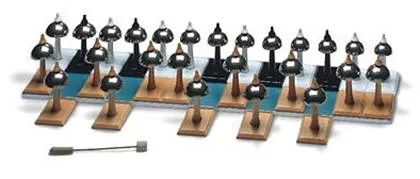
Mary Ellen’s observation: I had a boy who often got into trouble for seeming to ignore his teachers and failing to respond to requests whether to put work away, come to the line or whatever. He was becoming known as a behavior problem at home and at school until his mother discovered that his frequent colds settled in his ears and he couldn’t hear us! A temporary hearing aid, used until surgery was done, made a world of difference for him.
Grinding Spices/Food Prep – Olfactory
A 3-year-old did not enjoy grinding coffee beans and peppercorns in the same way as the other children – taking in the distinctive smells and sharing them with friends. It was clear that the materials did not resonate with him and something was off. Coupled with frequent absences from colds and loud snoring during naps, a physician discovered a sinus problem. Once cleared, these fragrant works were his favorites, as if they were new.
Taking children out to see, touch and smell fragrances in nature is an important part of Montessori school life, as well.

Mary Ellen’s comment: Some children are allergic to certain aromas or in the case of some autistic children, highly reactive to them.
Juicing/Food Prep – Taste
A 2.8-year-old practiced the lesson often, but always passed on drinking the fresh orange juice and lemonade (the fruits of his labor, so to speak). This, along with biting as a behavioral challenge, prompted a visit to the dentist. As it turned out, there were impacted baby teeth under the gums. A physical delay in formation of the teeth had affected his taste sensation. The dentist addressed the issue and the child was happier and healthier.
Rice Bin – Touch
A 4-year-old experienced changes at home after a sibling arrived. At school, she started to experience outbursts of crying. Digging for figurines in a rice bin calmed her. The figurines were refreshed often (insects, animals, dinosaurs) and, as she relaxed, her lessons progressed to word classification on Three-Part Cards. A sensory bin was an effective segue to normalizing her workflow at school, so her parents got one to help her relax at home. We continued to jointly observe her level of contentment, thereby establishing a positive connection between school and home.
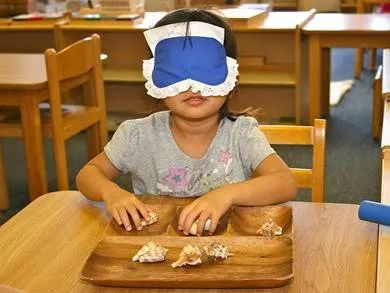
These are just a few examples of how the Montessori materials reveal much about a child and how important our eyes and ears are as Assistants. We have a vital role and responsibility to share our observations with the lead guide. Early detection and assistance for children in need is critical for them to pass through the absorbent mind phase of development as successfully as possible.
So, on days when the cleaning feels a bit much (and there will be those days!), just remember that there are advocacy aspects to the role that truly add value for the children and their families.
As an educator, “If you see something, say something.” These are words to live by.
Mary Ellen’s conclusion: We always advise classroom Interns and Assistants to share their observations with the lead teacher, as Helene mentions. Generally speaking, it is the job of the lead teacher and/or head of school to bring issues to parents in a diplomatic way. Going directly to the parent without including the lead teacher can lead to unexpected difficulties. But, keep your eyes open!
We are not diagnosticians, and there may be multiple reasons for things we see, but we often see things that may be missed by others. It is a service to the child to bring them up for discussion. Early intervention is essential to get the best help for a child with any kind of learning or sensory difficulty. In many cases, a head teacher or administrator will invite someone else in to observe the child. A second or third set of eyes can be helpful in determining if there is cause for concern.
